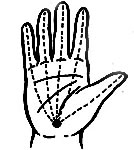Digestive Cleanse
“When fat or mucous is excessive, shatkarma: the six cleansing techniques, should be practiced before pranayama. Others, in whom the doshas, i.e. phlegm, wind and bile, are balanced should not do them.”
Hatha Yoga Pradipika, Swami Muktibohananda
The shatkarmas are six groups of yogic cleansing practices; “shat” meaning six and “karma” meaning action. These practices were originally practiced before any other kind of Yoga was commenced and were actually the foundation of what we know today as Hatha Yoga. From these many practices, we are mainly concerned with varisara dhauti/"intestinal wash".
In this "intestinal wash", a series of dynamic yoga pose exercises are executed while drinking a volume of salt water. Plague that has built up on the intestinal walls is broken off from the motion of the exercises along with increased water pressure within the intestines and a reverse osmosis because of the saline composition of the water. This decaying plague is then flushed out of the system immediately with the water flow, as opposed to digesting it in a fast.
The shatkarmas were developed specifically to purify and remove excess doshas/internally generated pathogens, i.e. mucous, bile, and gas, from the body. When the doshas are out of balance, disease occurs, inhibiting healthy digestive function, or leading to any number of illnesses such as: constipation, acidity, and obesity. Varisara dhauti is safe, practical and comprehensive as it works on all three of the doshas, allowing for proper and effective digestive operations to occur.
Varisara dhauti stimulates and opens various valves and sphincters along the digestive tract, while removing any excess mucous, gas, or bile. The group of postures performed in this practice sequentially and progressively opens up digestive valves: the pyloric valve between the stomach and the duodenum, the ileocaecal valve between the small intestine and the large intestine, and the sphincter at the end of the alimentary canal.
The benefits of this practice are innumerable. One immediately notices the effects of this practice on the digestive tract. Natural functioning of the intestines and healthy bowel movement is encouraged. It heals digestive disorders such as: constipation, flatulence, acidity, and indigestion. It tones the liver and other digestive glands, as well as preventing urinary infections and the formation of kidney stones. In fact, varisara dhauti can actually change your metabolism.
Regular practice of varisara dhauti has also known to be beneficial for diabetes mellitus, hypoglycemia, obesity, high cholesterol and high lipid levels. Due to the removal of excess mucous, asthma can be relieved along with chronic colds, sinusitis, and allergies. This practice purifies the blood, alleviating skin problems and strengthening the immune system.
My own experience with this practice was that prior to this intestinal wash, I had failed many times at becoming vegetarian. I had always felt rather weak when living off of only vegetable matter and would return to eating meat out of necessity. After the first time of doing this practice, I had no problem feeling vibrant on a vegetarian diet.
The benefits of this practice are so strong they extend past the physical effects and begin working energetically. Varisara dhauti opens up the interior of the body, creating room for energy to flow. It removes energy blockages from the nadis (the passages in which energy flows throughout the body), allowing for the increase in the movement of energy throughout the body. This practice leads to an increased level of prana or ch'i, from this one experiences a significant increase in energy level.





